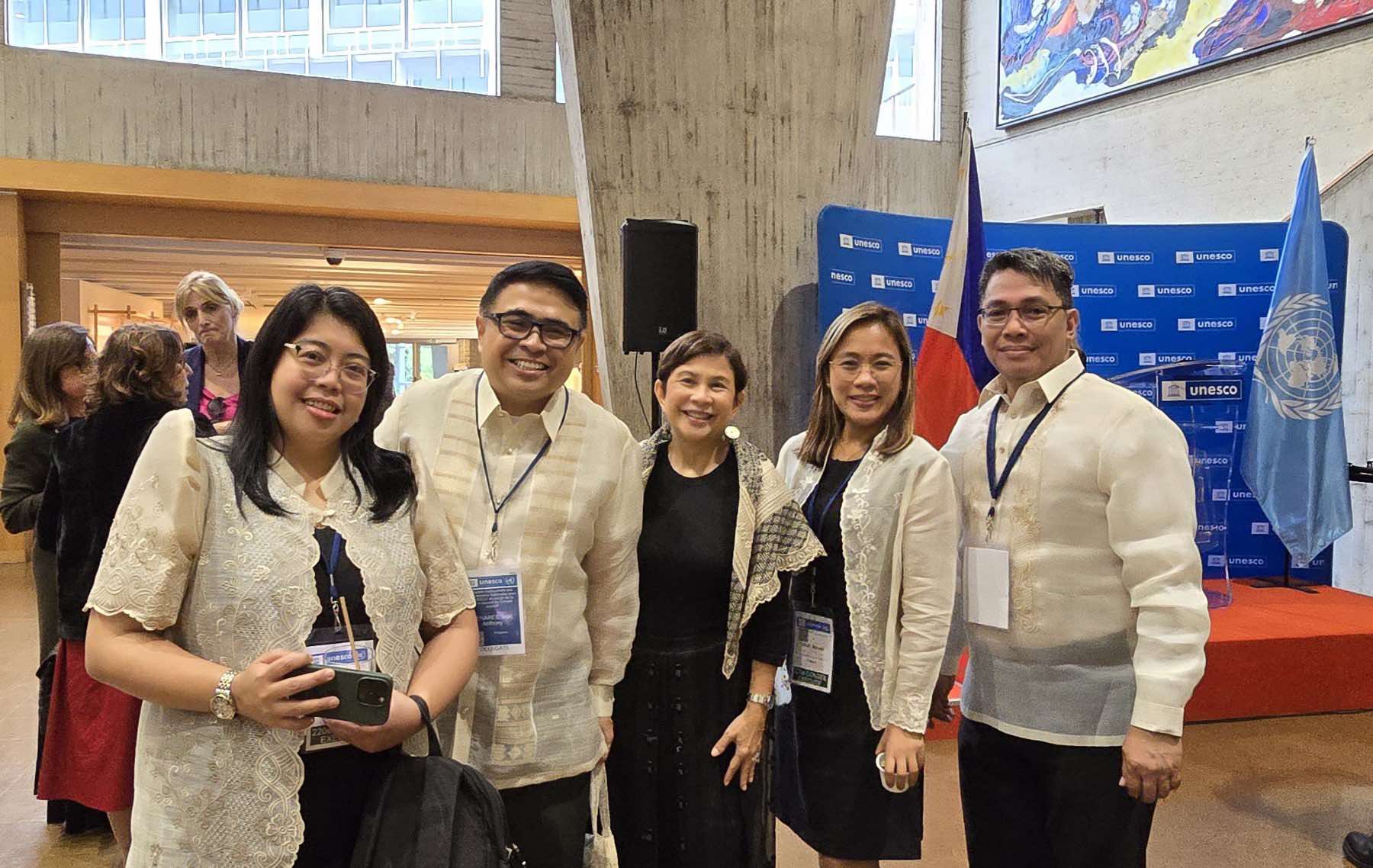Higugma speakers Amie Milano and Rolf Gian Marcos with emcees from ABCG talk about self-love, two days after Valentine’s Day. Photo from FEU Anti-Bullying Core Group.
Last Feb. 16, Far Eastern University’s Anti-Bullying Core Group (ABCG) conducted this year’s “Higugma: A Celebration of Bodies and Colors” at the Nicanor Reyes Hall Room 107.
Highlighting body positivity, self-love, and inclusivity, the event was a roundtable discussion with FEU Gender and Development Desk Coordinator, Amie Milano, Psychological Association of the Philippines (PAP) LGBT Psychology Special Interest Group Co-Chairperson, Rolf Gian Marcos, and Social Media Influencer, Ayn Bernos as its guest speakers.
ABCG Ambassador and event proponent, Samantha Cambe, said the event was envisioned to be an opportunity for students to freely express their experiences and learn from speakers knowledgeable on body dysmorphia and patriarchal and societal, expectations.
“This has also enabled people to relate their stories and share how they overcame these circumstances,” said Cambe.
One of the speakers, Marcos, explained how people tend to have a myopic view of themselves.
“It is our innate nature to dwell on negativity on ourselves when there is so much more about [us],” said Marcos. In relation to this, Milano shared the importance of self-acceptance. “Your flaws, skin color, and such are what make you whole as a human being,” said Milano.
As GADD Coordinator, Milano also highlighted in an interview how the event served as an avenue to hear the voice of this generation and learn the real, lived experience of the students.
“It is very important that there are consultative measures in policy making to ensure that these policies cater to the diversity of this generation,” said Milano.
Cambe explained that the event was conceptualized as a response to the low self-esteem caused by body insecurities aggravated by the youth’s isolation and increased exposure to social media during the pandemic.
“This event served as a platform… for people to share their concerns and talk about their thoughts on their own color, beauty, and how they perceive themselves,” said Cambe.




